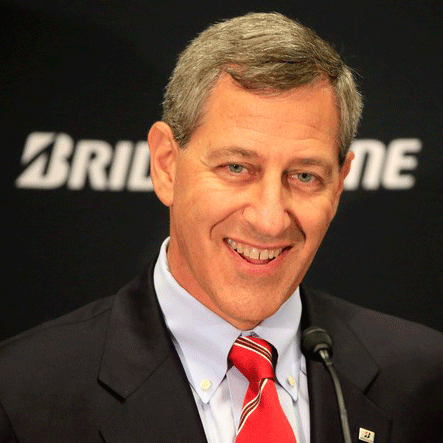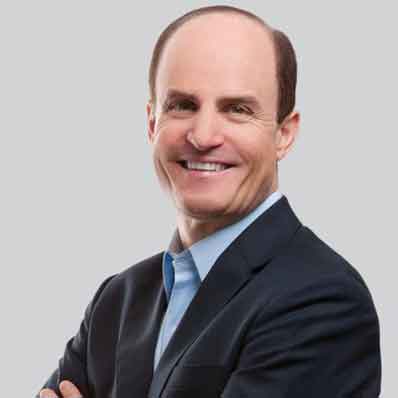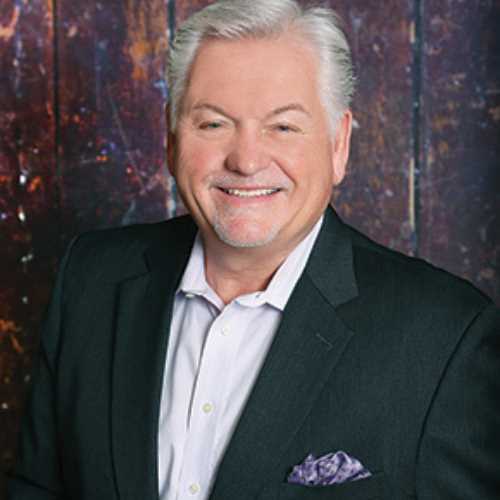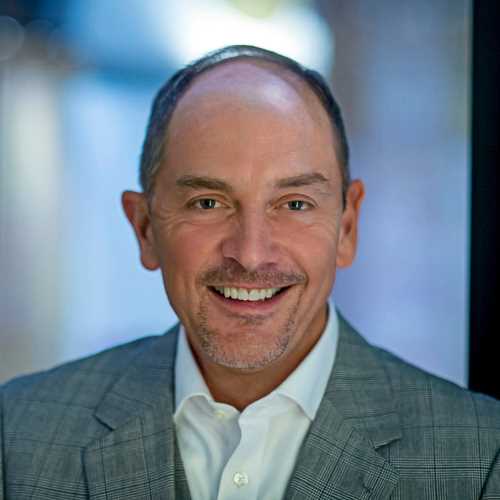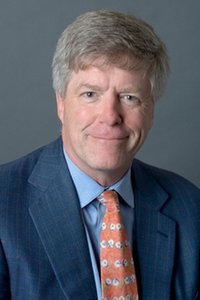
Tom Davenport Speaker Biography
Thomas Davenport is a world-renowned thought-leader who has helped hundreds of companies revitalize their management practices. He combines his interests in research, teaching, and business management as the President’s Distinguished Professor in Management and Information Technology at Babson College. He has also taught at the Harvard Business School, the University of Chicago, Dartmouth’s Tuck School of Business, and the University of Texas at Austin and has directed research centers at Accenture, McKinsey & Company, Ernst & Young, and CSC. Tom earned a Ph.D. from Harvard University in social science.
An agile and prolific thinker, Tom has written or co-authored sixteen best-selling business books and is one of Harvard Business Review’s most frequently published authors. He is the creator and/or early author of several key business ideas including: competing on analytics, big data, knowledge management, human approaches to information management, business process reengineering, and realizing the value of enterprise systems.
His latest book, Big Data at Work, covers all the bases including what big data means from a technical, consumer and management perspective and where it can have real business impact. Keeping Up with the Quants: Your Guide to Understanding and Using Analytics continues his pioneering work on Data Analytics begun with the bestseller, Competing on Analytics – named by the Harvard Business Review as one of the twelve most important management ideas of the past decade. And his recent book, Judgment Calls: Twelve Stories of Big Decisions and the Teams that Got Them Right, was named by Publisher’s Weekly as one of the best business books of 2012.
Professor Davenport is one of the first management thinkers recruited to blog for Harvard Business Online and his “The Next Big Thing” blog is a reader favorite as is his Wall Street Journal blog. Tom has written over 100 articles for such publications as Harvard Business Review, Sloan Management Review, California Management Review, and the Financial Times, and is quoted frequently in The Wall Street Journal, New York Times, Business Week, Fortune, Business 2.0, the Boston Globe, and Fast Company. He is also interviewed frequently by the broadcast media.
Tom Davenport was named one of the top 50 Business School Professors in the World by Poets and Quants and Ziff Davis once again included him as one of only four IT management thought leaders on their “100 Most Influential People in IT” list. Tom has been named one of 10 “Masters of the New Economy” by CIO Magazine, one of 25 “E-Business Gurus” by Darwin, and one of the most trusted consultants and the third leading business-strategy analyst (just behind Peter Drucker and Tom Friedman) by Optimize Magazine.
To book business strategy speaker Tom Davenport call Executive Speakers Bureau 901-754-9404.
Analytics 3.0: Big Data in Big Companies
The concept of “big data” was originally established in startup and online firms in Silicon Valley, but it is now being widely adopted by large organizations in more traditional industries. In this session, Tom describes the concept of big data and what large firms are attempting to accomplish with it. Big data coexists with previous approaches to data management and analytics in large firms, and Tom describes their integration using the “Analytics 3.0” framework he has developed. This framework portends an entirely new era for how to conduct analytics in organizations, and promises considerable improvements in speed and impact.
Keeping Up with Your Quants
Quantitative analytical thinking is key to successful individual and organizational decision-making. Yet many managers lack the necessary orientation to quantitative matters. In this presentation, Tom adapts the ideas in his book Keeping Up with the Quants to acquaint managers with a straightforward process for quantitative thinking. He describes the steps in the process that are most critical for managers to address, and those they can safely leave to the quants. He also describes the most effective ways for quants and decision-makers to work together, and the expectations each should have. Throughout the session, he presents examples of good and bad quantitative thinking and decision-making.
Big Data vs. Small Data Analytics
Although many companies and observers are excited about the possibility of competitive advantage from analytics on “big data,” they may not understand fully the differences between big and small data analytics. In this session, Tom describes the concept of big data and what organizations are attempting to accomplish with it, and the role of the data scientist in extracting value from big data. He presents examples of several leading companies, from startup to established, that are aggressively pursuing big data. Throughout the session, Tom sheds light on the implications of big data and how it enables organizations to manage and bring products and services to market.
Making Different — and Better — Decisions
In this talk, Tom describes the results from his most recent research study on the new landscape of decision-making. He argues that recent decision failures mean that organizations need to systematically examine their approaches to making key decisions. He defines how organizations improve decisions through:
- Different opinions and dissent in the decision process
- Different alternatives, such as the wisdom of crowds
- Findings from neuroscience and behavioral economics
- Different blends of analytics and intuition
- Different relationships between analysts and decision-makers.
He draws upon interviews with more than fifty companies about how they have actually improved particular decision processes.
Transforming Health Care with Analytics
The health care industry—including providers, payers, and life sciences companies—is poised on the edge of an analytical revolution. In this session, Tom describes how we got here, and the reasons why analytics form a critical opportunity for health care. He’ll present a model for how organizations can build their analytical capabilities, and where health care organizations are today in this regard. He will then address the critical topic of deploying analytical capabilities to improve daily care decisions within provider organizations. As always, Tom draws upon myriad examples of leading practices in health care analytics and the organizations that have adopted them.
Making Better Decisions in Financial Services: More Analytics and More Intuition
The global financial services industry has endured an unprecedented period of poor decision-making that has threatened its very survival. In the new economic and regulatory environment, financial institutions need to ensure that they make decisions with high value and low risk. In this presentation, Tom describes an approach to decision-making that maximizes both the power of analytics as well as the ability of human intuition to know that the game has changed.
Analytics at Work: Smarter Decisions, Better Results
Any organization and manager can benefit from systematic examination of decision-making and analytics provides a powerful tool. This session addresses how any organization can improve its analytical capabilities to enable better decision making processes. Tom demonstrates how some of the world’s leading companies use analytics to make better decisions as well as build competitive advantage. He presents a process for systematically improving decisions and translating them into action and better business results.
Participants will also be able to address particular issues and topics that relate to their own organizations.
Competing on Analytics: How Fact-Based Decisions & Business Intelligence Drive Performance
Companies have long used business intelligence for specific applications, but these initiatives were too narrow to affect corporate performance. Now, leading firms are basing their competitive strategies on the sophisticated analysis of business data. Instead of a single application, they are building broad capabilities for enterprise-level business analytics and intelligence. These strategies are driven by senior executives who insist on fact-based decisions. In this talk, Tom describes his recent research on firms that compete on the basis of their analytical prowess and provides guidelines for adopting similar approaches.
The New Quantitative Era – Creating Successful Business Change with Analytics
In this presentation, Tom describes what it takes to create analytics-driven business change. Hint: it’s not about the math. He’ll address the key attributes and requirements of quantitative analysts, analytics group leaders, analytical decision-makers, and analytical organizational cultures. He will also profile people and organizations that have made this transition, and how they went about it. Anyone who is currently doing or planning to do analytical work—or any businessperson who would like to benefit from the efforts of analytical people—will benefit from this talk.
Leading with Analytics — At Every Level
CFOs and other senior executives need to set the tone for analytical decision-making within their organizations. Their example and their leadership are the key drivers of a company’s analytical culture and capability. In this presentation, Tom describes what it means to be an analytical leader using leading examples of successful CFOs and other senior executives. He also makes the case that it’s not just senior executives who drive their organizations in a more analytical direction; effective analytical leaders are needed at every level. In essence, he explores the mix of art and science used by even the most analytical leaders in making effective decisions.
How Do Managers Want Their Information Served?
How fast and flexible do managers want their information? And what kind of information is needed with the greatest speed? Based on interviews with senior executives and a survey of over 300 senior executives at large US companies, Tom describes contemporary needs and wants for information delivery. He discusses the types of information needed most quickly and flexibly, and how leading organizations are addressing these needs. Among the surprising findings: managers don’t necessarily want information to come faster.
The Rise of Analytical Performance Management
Analytics, previously confined to operational decisions in areas such as marketing and supply chain, are moving into the executive suite. Specifically, performance management is rapidly moving beyond scorecards to include the quantitative relationships among performance factors. Smart executives are relating key nonfinancial performance metrics, such as customer loyalty and sustainability, to financial performance. In this presentation Tom describes the shift toward analytical performance management and presents examples of organizations that have already prospered by using this approach. He also raises the question of why analytical performance management isn’t more common in a world in which every firm needs to know what’s driving its financial performance.
What’s the Big Idea? Creating and Capitalizing on the Best Management Thinking
This presentation, based on Tom’s book by the same name, describes an approach to business and management ideas that can revitalize organizations. Tom, who himself has helped to create several important ideas including reengineering and knowledge management, describes why the adoption of new ideas matters to organizations. He emphasizes the critical role of the “idea practitioner,” to select the appropriate ideas for his or her organization, modify them to fit, and shepherd them through implementation. Tom’s reinforces the message that there are no faddish ideas, only faddish approaches to implementing ideas.
Not by Brains Alone: Six Interventions for Knowledge Worker Productivity
Peter Drucker has argued often that improving knowledge worker productivity is the most important task of the century. Yet we have few measures or management interventions to make such improvement possible. Most organizations simply hire smart people, and leave them alone. In this talk, Tom Davenport presents six interventions for improving knowledge worker productivity, each with a set of approaches, examples, and cautions. The interventions combine roles for technology, organizational culture and behavior, as well as the physical work environment, as tools for enhancing performance. His recommendations are based on several research studies that demonstrate how companies have addressed knowledge work, both successfully and unsuccessfully.
Attention Must Be Paid!
The scarcest resource in business today is not information or knowledge, but human attention. In this presentation, Tom describes the key elements of attention management in business as laid out in his book The Attention Economy. He addresses such issues as the measurement of attention, the lessons we can learn from “attention industries,” and the role of technology in managing attention. Some of the contexts into which attention management can be applied include strategy, globalization, and leadership. He also emphasizes the attentional implications of information and knowledge management within organizations.




